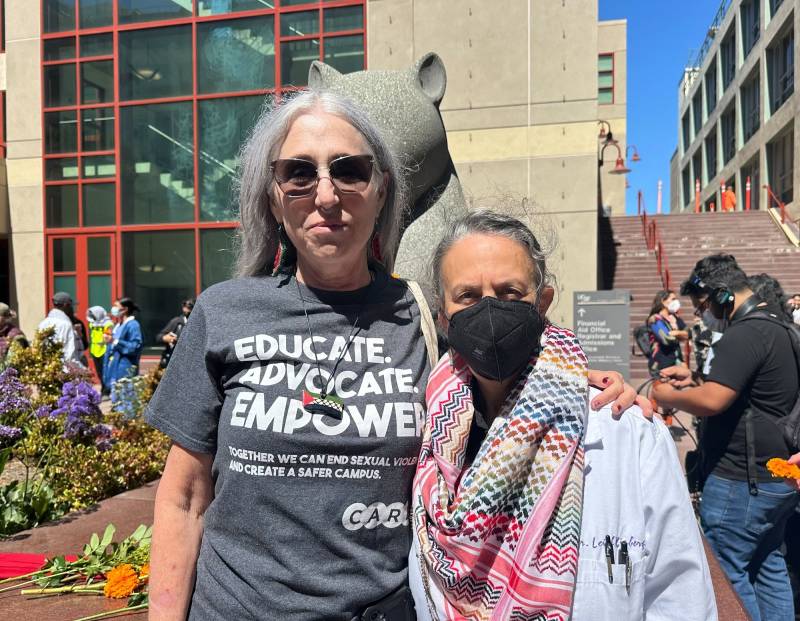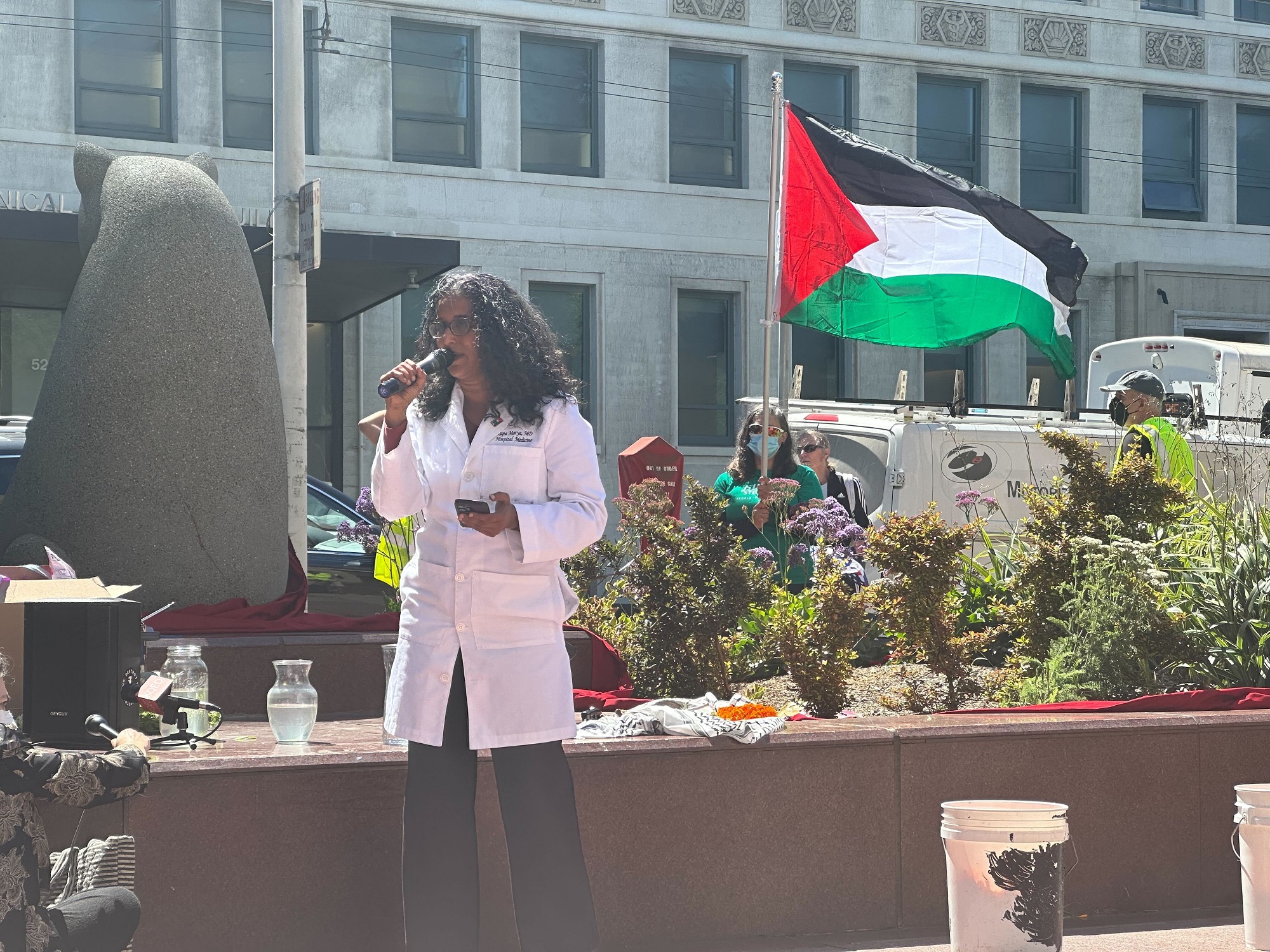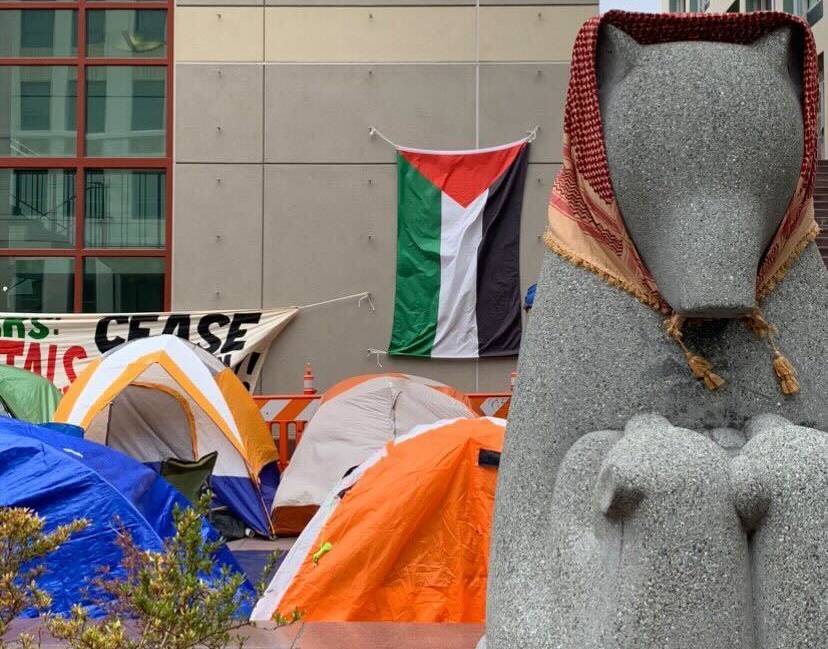Updated at 1:05 p.m.
Editor’s Note: Because of an editing error, an earlier version of this story incorrectly referred to the university that suspended 22 students for establishing an encampment to protest the Israel-Hamas war. It was the University of San Francisco, not UC San Francisco. The earlier version also erroneously reported that Denise Caramagno had reached out to former clients. This story has been corrected.
Denise Caramagno has worked as a violence prevention advocate at UC San Francisco for almost a decade. Last month, she received an email notifying her of the university’s intent to fire her.
“UCSF hired me to support people who experienced different kinds of violence and harm. And part of my job was prevention of violence,” she said during a protest outside of the university’s campus on Friday. “I saw my colleagues being silenced as they spoke about genocide in Gaza. I spoke out. I felt a professional obligation to do so.
“I think they’re firing me for doing the job they hired me to do.”
Most Bay Area universities are back in session for the fall semester, and with the return of classes comes the return of student organizers whose mass demonstrations and encampments rocked campuses across the country in the spring, including at UCSF.


